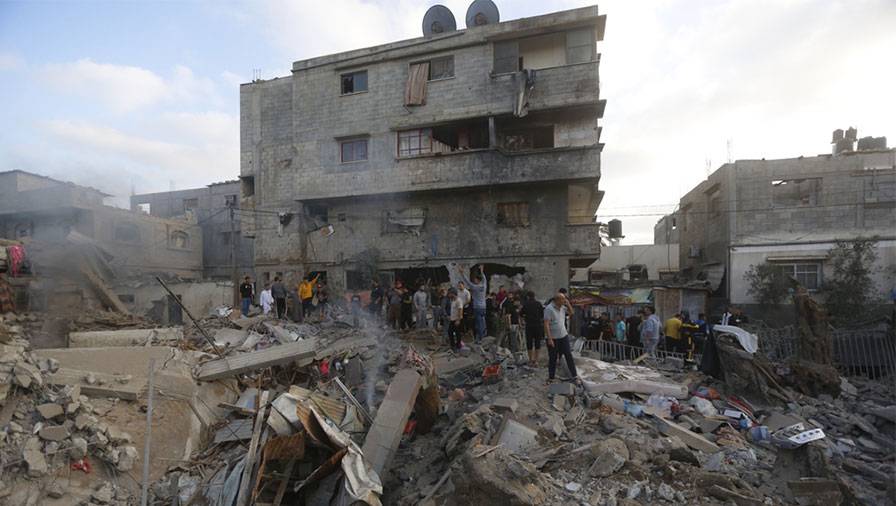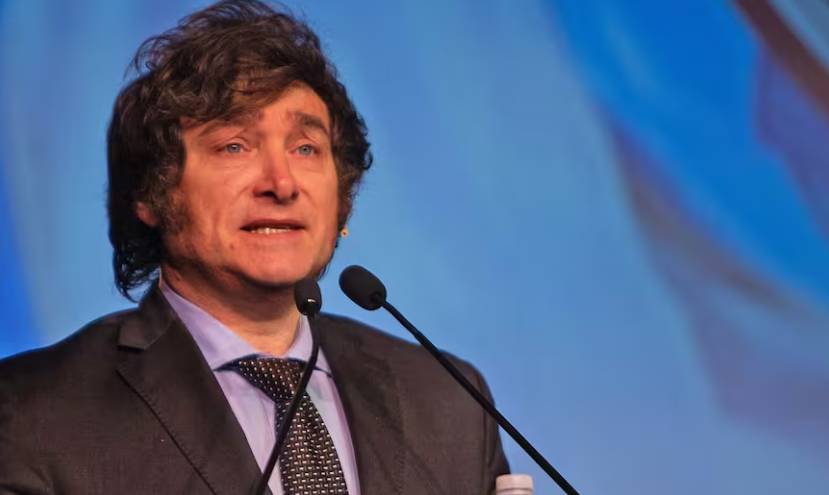Zelensky appeals to UN on Russia; US defends Argentina’s peso
And the world’s largest stablecoin issuer confirms capital raise at reported US$500b valuation.
Volodymyr Zelensky.
And the world’s largest stablecoin issuer confirms capital raise at reported US$500b valuation.
Volodymyr Zelensky.
Happy Thursday and welcome to your morning wrap of the key business and political news from around the world.
First up, Ukrainian President Volodymyr Zelensky has appealed to global leaders to intervene to prevent Russia from leading the world through “the most destructive arms race in human history” during his address to the UN General Assembly, The Guardian reported.
He warned that the combination of drone technology and artificial intelligence would end in catastrophe.
The Ukrainian president tried to galvanise support not just from the West, but also Russia’s ally China, telling them that Vladimir Putin, if unchecked, would use drones to expand his war throughout Europe. “The facts are simple. Stopping this war now, and with it the global arms race, is cheaper than building underground kindergartens or massive bunkers for critical infrastructure later,” he told the UN.
“Stopping Putin now is cheaper than trying to protect every port and every ship from terrorists. Stopping Russia now is cheaper than wondering who will be forced to create a simple drone with a nuclear warhead.”
His comments stand in stark contrast to US President Donald Trump’s claim that Russia’s military may only be a paper tiger.
To the United States now, where two detainees have died and another is critically injured after a suspected sniper opened fire at an immigration detention centre in Dallas, Texas, the BBC reported.
Authorities said the gunman died from a self-inflicted gunshot wound.
The FBI is investigating the incident as “an act of targeted violence”. It follows a string of attacks on Immigration and Customs Enforcement (ICE) facilities across the US in recent months.
FBI director Kash Patel posted a photo on social media of unused ammunition recovered from the scene. One casing has the phrase "ANTI-ICE" on it.

FBI director Kash Patel (Source: Wikimedia Commons.)
Moving to Israel, where at least 20 people have been injured in the city of Eilat after a drone launched from Yemen hit the resort city, which lies on the border with Jordan and Egypt, The Guardian reported.
Footage shared on social media shows a drone flying above the resort town before crashing. There was no immediate claim of responsibility for the attack, but the mayor of Eilat called on the government to “strike the Houthis hard” in retaliation.
The Houthis, who are backed by Iran, have been launching missiles and drones thousands of kilometres north towards Israel in what the group says are acts of solidarity with Palestinians.
Meanwhile, in Gaza, Israeli tanks have moved into multiple neighbourhoods in Gaza City over the past 24 hours, amid heavy shelling, explosions and sounds of gunfire, CNN reported.
As they take control of more territory, Israeli units are remotely detonating armoured vehicles packed with explosives to bring down buildings, according to videos and images geolocated by CNN.
The Israel Defence Force said that “Hamas converts such buildings into combat zones used for ambushes, command and control centres, weapon depots, fighting tunnels, observation posts,” and other uses.
Al Jazeera reported that at least 36 Palestinians were killed overnight.

Gaza.
To South America, where Argentina’s embattled bonds, stocks and peso currency gained for a third day on Wednesday after more details were shared on US support for the reform push by the government led by President and Trump ally Javier Milei, Reuters reported.
The US is in negotiations for a US$20 billion swap line with the country’s central bank and is prepared to purchase Argentina’s US dollar-denominated bonds. It will do so as a condition of a warrant, US Treasury Secretary Scott Bessent said in a post on social media.
Markets panicked after Milei's party suffered a larger-than-expected loss in a local election in Buenos Aires, reflecting growing frustration with his austerity measures. It prompted the central bank to burn through more than $1b of its dwindling US dollar reserves to defend its currency.
"Argentina has the tools to defeat speculators, including those who seek to destabilise Argentina's markets for political objectives," Bessent said. "I will be watching developments closely, and the Treasury remains fully prepared to do what is necessary."

Argentina President Javier Milei.
In business news, the issuer of the world’s largest stablecoin, Tether, is evaluating a major fundraising round which could put the company’s value on par with OpenAI, CNBC reported.
The El Salvador-based company is looking to raise between $15b and $20b for roughly a 3% stake through a private placement, according to a report from Bloomberg. The raise would value the company at $500b.
Soon after, the company’s chief executive, Paolo Adroino, confirmed the plans. The funds would “maximise the scale” of Tether’s strategy across existing and new business lines. A stablecoin is a type of cryptocurrency whose value is pegged to an underlying asset, like the US dollar, on a one-for-one basis.
Finally, markets on Wall Street have dipped for a second day as investors continue to sell out of high-flying AI stocks like Nvidia and Oracle.
The main indices were all down 0.3%, with Nvidia falling 1% and Oracle losing 2%.
“Tech is probably a little bit extended,” Infrastructure Capital Advisors chief executive Jay Hatfield told CNBC, adding that “there’s no real reason to be bullish. I would not say, 'Oh, nobody’s going to use AI and the world is coming to an end', but it’s clearly valuation. This might go on for a couple of days,” he added.
Sign up to get the latest stories and insights delivered to your inbox – free, every day.